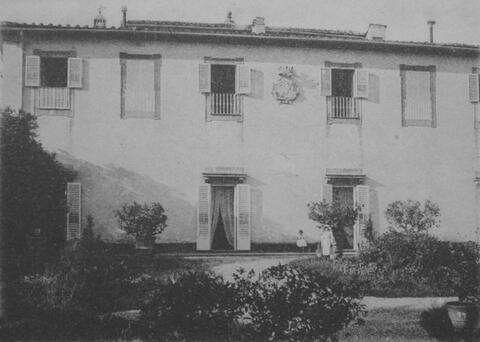Settignano is a frazione on a hillside northeast of Florence, Italy, with views that have attracted American expatriates for generations. The little borgo of Settignano carries a familiar name for having produced three sculptors of the Florentine Renaissance, Desiderio da Settignano and the Gamberini brothers, better known as Bernardo Rossellino and Antonio Rossellino. The young Michelangelo lived with a sculptor and his wife in Settignano—in a farmhouse that is now the "Villa Michelangelo"— where his father owned a marble quarry. In 1511 another sculptor was born there, Bartolomeo Ammannati. The marble quarries of Settignano produced this series of sculptors.
Roman remains are to be found in the borgo which some have claimed was named after Settimio or Septimius Severus—in whose honor a statue was erected in the oldest square in the 16th century, destroyed in 1944— though habitation here long preceded the Roman emperor. The name may be a corruption from the term Fundus Septimianus.
Settignano was a secure resort for estivation for members of the Guelf faction of Florence. Giovanni Boccaccio and Niccolò Tommaseo both appreciated its freshness, among the vineyards and olive groves that are the preferred setting for even the most formal Italian gardens.
Mark Twain and his wife stayed at the Villa Viviani in Settignano from September 1892 to June 1893. Twain was productive there, writing 1,800 pages including a first draft of Pudd'nhead Wilson. He said the villa "afford[ed] the most charming view to be found on this planet."
September 30, 1892 Friday: "We have been in the house several days, & certainly it is a beautiful place, — particularly at this moment, when the skies are a deep leaden color, the domes of Florence dim in the drizzling rain, & occasional perpendicular coils of lightening quivering intensely in the black sky about Galileo’s Tower. It is a charming panorama, & the most conspicuous country houses in it, & the most conspicuous towers & domes down in the city look to-day just as they looked when Boccacio & Dante used to contemplate them from his hillock five & six hundred years ago."
